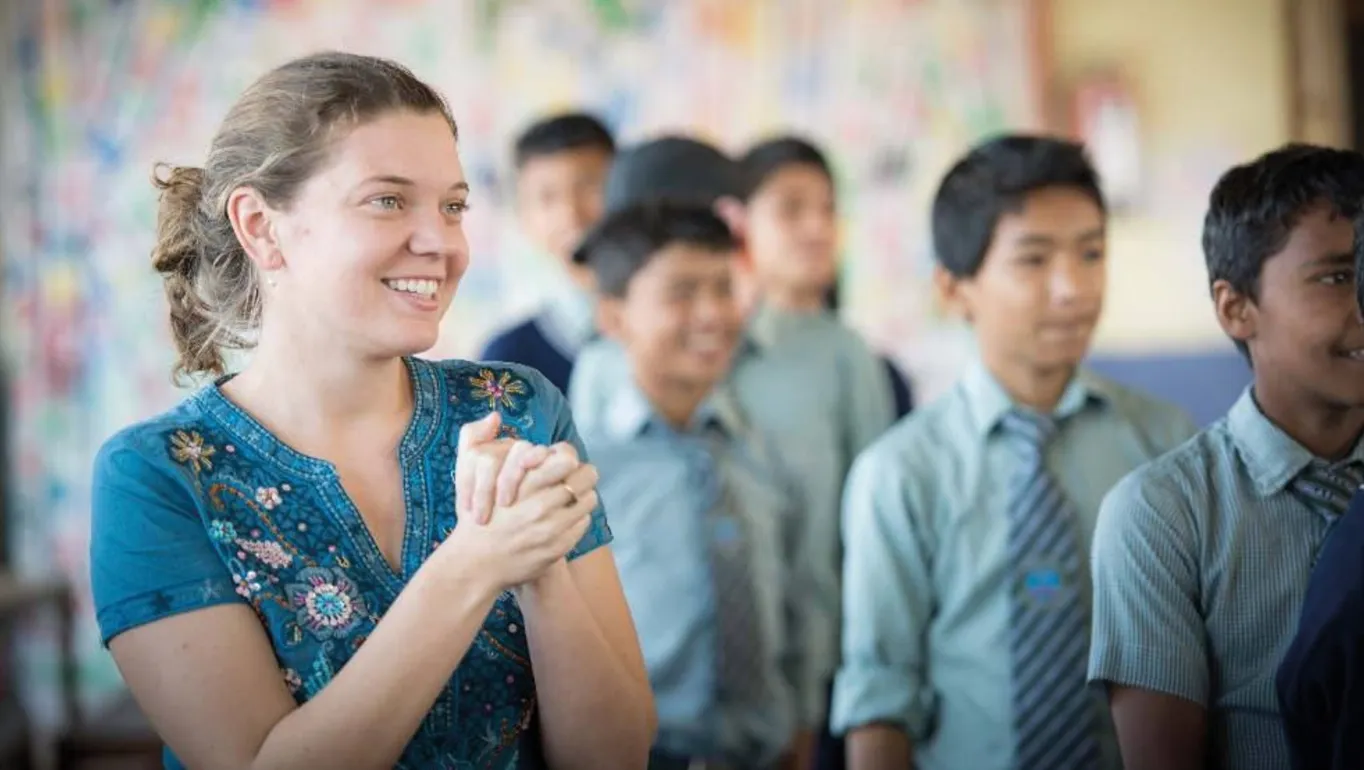In Surkhet, Nepal, the Kopila Valley School is busy working to support children and their families to achieve their full potential. It is part of their wider mission to offer solutions to global poverty through education. Maggie Doyne co-founded the charity in 2007 alongside Tope Malla from Nepal, whom she met in India and began this journey with. This interview marks a step to eradicate poverty in the spirit of global solidarity to the 2030 Agenda on Sustainable Development.
How did you set up your charity, and what was the process like?
I definitely didn’t set out to start a charity. It wasn’t something I had planned, and I certainly didn’t think of myself as someone who would get involved in philanthropy or international development. After high school I took a gap year, which at the time felt like a bit of a leap into the unknown. I ended up traveling through South Asia, and one of the most formative experiences I had was spending time in Nepal shortly after the conflict there in 2005.
What I witnessed during that time really stayed with me. The level of poverty, the lack of access to basic human rights, and the vulnerability of children and women moved me deeply. I ended up meeting my future co-founder during that trip. He’s from the region, and together we started volunteering and helping wherever we could. Initially, we focused on the India-Nepal border, where we worked to intercept cases of human trafficking, child labor, and exploitation. But over time, we came to understand that these issues were symptoms of much deeper, systemic problems back in the rural communities of Nepal. We realized if we really wanted to make an impact, we needed to go back to those communities and work from within to build something sustainable.
It started small: bake sales, garage sales, asking friends and family to donate. There was no grand vision at first, just a desire to help. Eventually, we formalized things by registering as an NGO in Nepal and then securing our 501(c)(3) status in the U.S. so people could donate with confidence. From the very beginning, we wanted this to be about creating a direct connection between donors and impact. We didn’t want it to feel abstract or bureaucratic. That’s why transparency, storytelling, and showing the real, human faces behind the work became so central to our mission.
- What kind of work does your charity do?
Our work is really centered on creating safe, nurturing environments where children can grow up healthy, educated, and empowered to break cycles of poverty. At the heart of our work is our children’s home and our school, which serves as a hub for the community. The school is free, provides quality education, and includes meals, healthcare, counseling, and all the things children need to thrive. It’s a holistic model because we’ve learned you can’t just address education in isolation.
Beyond education, we focus heavily on supporting women. In Nepal, as in so many places, women face enormous barriers: unemployment, poverty, gender-based violence, and systemic discrimination. Our Women’s Center provides vocational training, small business support, and safe employment opportunities. We offer programs in sewing, crafts, literacy, and entrepreneurship. It’s about helping women build skills, gain financial independence, and find a sense of dignity and agency.
The impact is significant because when women thrive, entire communities thrive. It’s not about ‘empowering’ women in the sense of giving them something they don’t already have, it’s about removing the barriers that prevent them from exercising the power they already possess. When a woman starts earning an income, she sends her children to school, she buys nutritious food, she gains respect in her household. It shifts the whole dynamic.
We also offer family support and social work services, helping keep families together when possible and ensuring children have a stable, loving environment. It’s about looking at the whole picture and asking: what does this child, this mother, this family need to thrive?
How do you see BlinkNow evolving in the future, especially in today’s unstable world?
We’re living in a time of great uncertainty, but also great opportunity. For us, the future is about continuing to deepen the work we do locally while sharing our model more broadly. The world is waking up to the fact that top-down, foreign-led charity doesn’t work in the long term. Real change happens when it’s community-led, when it’s owned and driven by the people who are most affected. BlinkNow is a great example of what’s possible when you focus on holistic, grassroots solutions.
I want to see this model of building healthy, thriving communities centered on children’s well-being, replicated and adapted by others. We’re already starting to share our learnings more widely. We host visitors, we create toolkits, we share our challenges as well as our successes. I’d love for us to become a hub where people from around the world can come and see what works, what doesn’t, and take those lessons home to their own communities.
At the heart of everything is education because we believe it’s the most powerful tool for breaking cycles of poverty and creating long-term change. But education isn’t just about classrooms. It’s about nutrition, safety, health, and opportunity. It’s about creating environments where children can dream and achieve.



